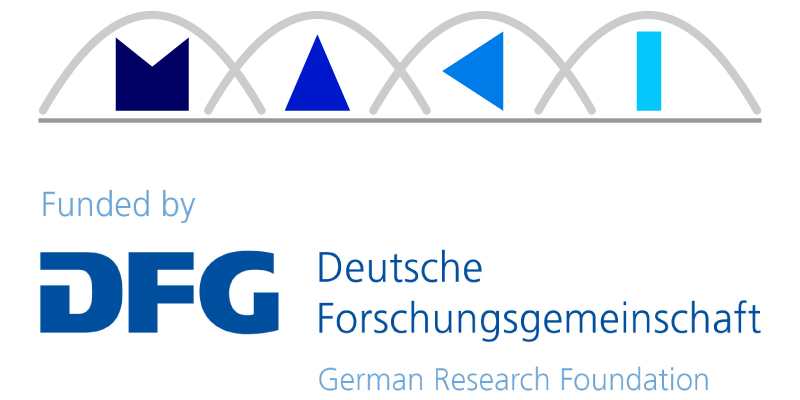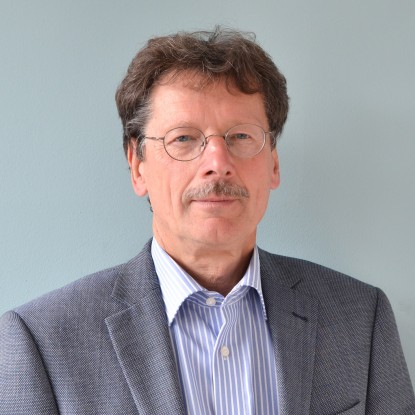| Lecturer | Ioannis Stavrakakis |
| Title | Resource Competition in a Highly Networked World of Humans and Things |
| Date | Wednesday 03/02/2016, 2.00 – 3.00 p.m. |
| Location |
S3|20, Room 111 Rundeturmstr. 10, 64283 Darmstadt |
|
Abstract |
|
|
Advances in Information and Communication Technologies (ICT) have enabled the generation and dissemination of vast amounts of information that enhance awareness about the environment and its resources. While awareness brings benefits, it also intensifies competition and results in potentially significant congestion penalties (price of anarchy) in distributed, uncoordinated environments. Following a simple case study illustrating the point (parking search problem), the talk will focus largely on the uncoordinated (congestion penalty inducing) resource selection problem, that appears to have a broad applicability in smart city environments. The case of fully rational (strategic) decision-making in a competitive environment will be presented firsts to introduce the basic analytical framework and set the benchmark for the human-driven decision-making machinery that will follow (the case of limited information decision-making is also discussed and shown to possibly lead to less-is-more phenomena). As very frequently it is humans who ultimately make choices and take decisions, human-driven decision making is considered next. Such decisions are constrained by computational, cognitive or other limitations or biases. Decision-making modeling and analysis machinery under such bounded rationality is presented, including fast and frugal heuristics. It is also shown that such bounded rationality decisions can be more effective than those under the full rationality model. If time permits, the talk will also briefly point to two ICT-enabled alternative approaches to addressing the distributed resource selection problem in a competitive environment. The first approach eliminates the original (physical resource access level) congestion penalty by resolving the competition in the pricing arena (auctioning of resources); a comparison with the original uncoordinated access shows that it is possible to have win-win situations (resource operator earns more and users pay less). The second approach attempts to bring some ICT-application-assisted coordination to the distributed resource allocation problem, by passing the resources from one application user-subscriber to another; fairness issues, free-riding phenomena and exclusion of non-subscribers from accessing public resources are among the main challenges that emerge in this case. |
|
|
Bio |
|
| Prof. Ioannis Stavrakakis (IEEE Fellow, Dept Chair 2013 – ) is Professor in the Dept of Informatics and Telecommunications of the National and Kapodistrian University of Athens. He received his Diploma in Electrical Engineering from the Aristotelian University of Thessaloniki and his PhD in the same field from University of Virginia, USA. He served as Assistant Professor in CSEE, University of Vermont (USA), 1988-1994; Associate Professor of Electrical and Computer Engineering, Northeastern University, Boston (USA), 1994-1999; Associate Professor of Informatics and Telecommunications, National and Kapodistrian University of Athens (Greece), 1999-2002; and as Professor since 2002. Teaching and research interests are focused on resource allocation protocols and stochastic traffic management and congestion control for communication networks (peer-to-peer, mobile, ad hoc, autonomic, delay tolerant, social and future Internet), with recent emphasis on human driven decision-making in distributed competitive environments and information-centric networking. His research has been published in over 220 scientific journals and conference proceedings and was funded by USA-NSF, DARPA, GTE, BBN and Motorola (USA) as well as Greek and European Union (IST, FET, FIRE) funding agencies. He has received 2 Marie-Curie grants for training post and has supervised about 20 Ph.D. graduates. He has served repeatedly in NSF and EU-IST research proposal review panels and involved in the TPC and organization of numerous conferences sponsored by IEEE, ACM, ITC and IFIP societies. He has served as chairman of IFIP WG6.3 and elected officer for IEEE Technical Committee on Computer Communications (TCCC). He has been in the editorial board of Proceedings of IEEE (2015-), Computer Communications (2008-), IEEE/ACM transactions on Networking, ACM /Springer Wireless Networks and Computer Networks journals. He has served as head of the Communications and Signal Processing Division, Director of Graduate Studies and Dept Chair. | |
| mehr: http://cgi.di.uoa.gr/~ioannis/ | |
SFB 1053 MAKI

Ioannis Stavrakakis
Ioannis Stavrakakis



